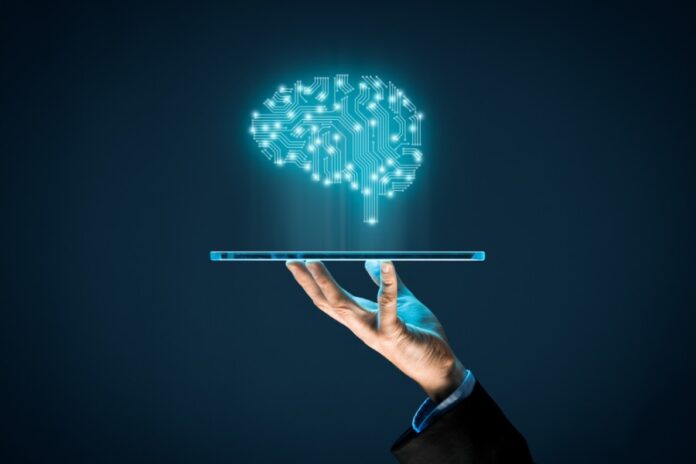
With the rise of AI tools and products being used in the industry to automate tasks and streamline processes, it’s hard to know what the effects of using AI will be. From adding objectivity and speed to identifying skill gaps and providing personalized training plans, here are insights from executives and HR leaders into how AI has impacted HR.
Adds Objectivity and Speed
The rise of hiring algorithms and artificial intelligence is adding objectivity and speed to the hiring process, enabling hiring teams to make confident candidate selections based on data-driven insights and predictions. According to a recent report by Modern Hire and Aptitude Research, quality of hire was the most important factor for recruiting teams looking to invest in talent acquisition technology tools, and due to AI’s ability to predict candidate potential based on job-relevant data, more employers are adopting this technology. It is absolutely critical, however, that AI be used in an ethical manner. This is especially the case when it comes to scoring interviews and assessments, which, when implemented correctly, have proven to result in dramatic increases in performance and diversity.
Eric Sydell
EVP of Innovation, Modern Hire
Automates Repetitive Tasks
AI-powered employee retention tools use various data points to create a flexible scheduling system that meets the needs of both employees and the organization. They analyze workflows to identify areas that can be automated to improve engagement and productivity. These tools can also identify dips in productivity and schedule activities to rejuvenate employees. Additionally, they eliminate the need for back-and-forth communication between employees, managers and HR for tasks such as time tracking and scheduling time-offs.
Through regular pulse surveys, these tools can extract insights to improve retention programs and encourage open communication among employees.
Chirayu Akotiya
Global Head of Marketing, Leena AI
Streamlines and Optimizes Recruitment
The integration of artificial intelligence (AI) has revolutionized the field of HR, enabling organizations to streamline and optimize their workforce management processes. One notable example is the use of AI-powered chatbots in the recruitment process, which can quickly and efficiently screen candidates, schedule interviews and answer common questions.
Additionally, AI has enabled HR professionals to effectively track employee performance and identify potential areas for improvement, as well as providing personalized training and development opportunities based on individual learning styles and preferences. As AI continues to evolve, it has the potential to transform virtually every aspect of HR, from talent acquisition and retention to performance management and leadership development.
James Scott
Founder, Embassy Row Project
Improves Career Mapping
Since integrating AI into our HR functions, we’ve experienced better capabilities for mapping the careers of our employees. Compared to before, we can now evaluate an employee’s performance, identify their strengths and weaknesses and plan how to help them achieve their career ambitions more precisely. Moreover, we can also align our organizational goals and those of the employees to ensure we are training them effectively to future-proof our company.
Liam Liu
Co-Founder and CMO, ParcelPanel
Efficiently Detects Employee Turnover
AI has an uncanny ability to gather and analyze historical data. With traditional data gathering practices, patterns of behavioral intention, attendance and absenteeism cannot be clearly predicted, but AI’s predictive analysis can recognize a series of variables to connect the dots.
For example, if I’m searching for ways to minimize employee turnover, all I have to do is generate data and since the data I generate from AI’s predictive analysis tool is not static, I can easily learn how employees behave and eventually change the workplace landscape to improve the employee experience.
Most employees are looking for an established career path, which can only be achieved if employers stay laser-focused on their quest for creating a more dynamic workplace.
Becky Moore
Founder, Global Grasshopper
Identifies Skill Gaps and Provides Personalized Training Plans
AI has numerous applications in HR beyond traditional recruitment and employee monitoring. AI can help monitor and evaluate employee performance based on productivity, attendance and feedback. It can identify skill gaps, provide personalized training and development plans for employees, enhance employee engagement through chatbots and virtual assistants and promote diversity and inclusion by addressing biases in hiring and performance evaluations.
While AI offers benefits such as increased efficiency, objectivity, personalization and cost-effectiveness, it also poses risks such as perpetuating biases and discrimination, privacy and security concerns, lack of transparency and over-reliance on technology leading to a loss of human skills and judgment. To ensure the ethical and fair use of AI in HR, appropriate safeguards and regulations must be implemented. This will promote the optimal utilization of AI while mitigating its risks and upholding the interests of all stakeholders involved.
Sharda Kumari
Staff Systems Engineer, Architect, Airbnb, Inc.
Interview Screening Questions Will Need to be More Thoughtful
Does any part of your recruitment process rely on having a candidate answer some written questions before an interview? Do you use the questions to screen out obvious chancers and time-wasters?
Prepare for this to change. You are going to have to ensure that an AI can’t answer your application questions before you ask them. You’ll need to ask something that an AI can’t answer easily. That’s (at the moment) some current knowledge, or something that requires real-world experience to know.
Ask your questions to an AI before you ask them to applicants. If the AI can answer them, you’ll need to make them harder.
Dave Pedley
Owner and Founder, KnowSheets
Image: Canva













